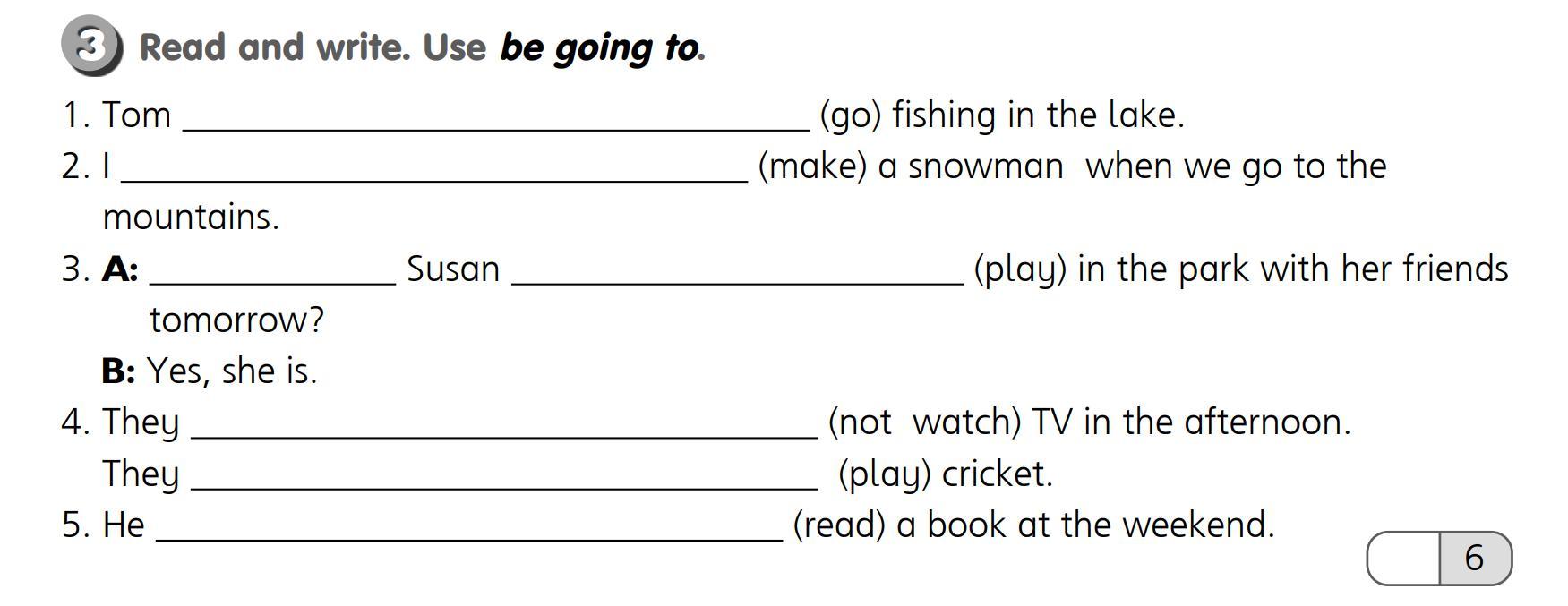Tom_____(go) fishing in the lake.I____(make)a snowman when we ge to the mountains.A:_____Susan______(play) in the park with the friends tomorrow? B:Yes, she is.They________(notwatch)TV in the afternoon.They_____(play) cricket.He_____(read)a book at the weekend
Ответы
Ответ:
1. Tom is going to go fishing in the lake.
2. I am going to make a snowman when we go to the mountains.
3. A: Is Susan going to play in the park with the friends tomorrow?
B: Yes, she is.
4. They are not going to watch TV in the afternoon.
They are going to play cricket.
5. He is going to read a book at the weekend.
Объяснение:
Надо использовать в этих предложениях конструкцию be going to (собираться что-то сделать).
Формируется эта конструкция так:
- подлежащее + форма to be + (not при отрицании) + going to + основной глагол
Формы to be:
- I am (1 лицо, ед.ч.)
- You are (2 лицо)
- He/she/it is (3 лицо, ед.ч.)
- We are (1 лицо, мн.ч.)
- They are (3 лицо, мн.ч.)
Формирование вопросов:
- форма to be + подлежащее + going to + основной глагол
Поэтому:
1. Tom is going to go fishing in the lake. (Том собирается пойти рыбачить на озеро.)
3 лицо, ед.ч. ⇒ Tom is going to go
2. I am going to make a snowman when we go to the mountains. (Я собираюсь слепить снеговика, когда мы поедем в горы.)
1 лицо, ед.ч. ⇒ I am going to go
3. A: Is Susan going to play in the park with the friends tomorrow? (Сюзан собирается завтра играть в парке с друзьями?)
B: Yes, she is. (Да, собирается.)
Вопрос, 3 лицо, ед.ч. ⇒ Is Susan going to play
4. They are not going to watch TV in the afternoon. (Они не собираются смотреть телевизор днем.)
They are going to play cricket. (Они собираются играть в крикет.)
отрицание, 3 лицо, мн.ч. ⇒ They are not going to watch
3 лицо, мн.ч. ⇒ They are going to play
5. He is going to read a book at the weekend. (Он собирается читать книгу на выходных.)
3 лицо, ед.ч. ⇒ He is going to read
#SPJ1
